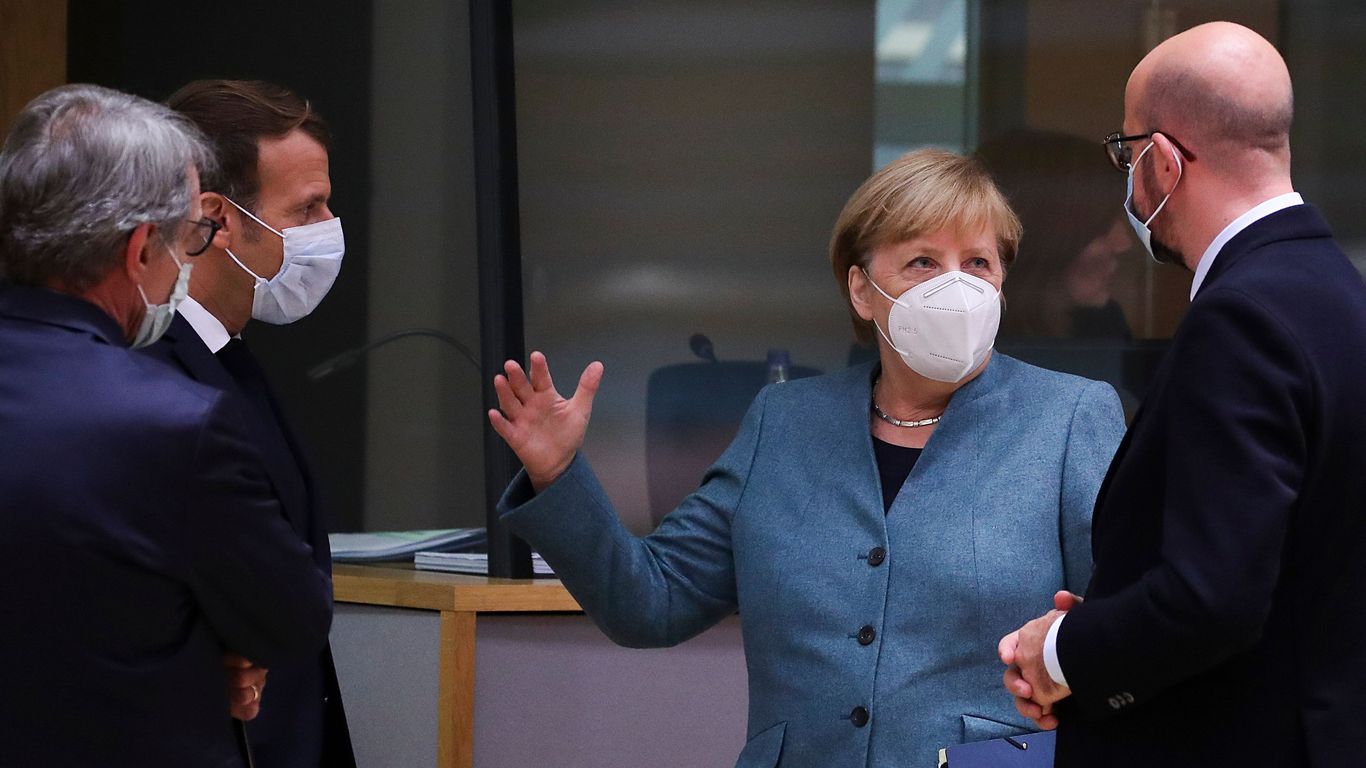
Italy on Thursday blocked the export of 250,000 AstraZeneca doses to Australia, becoming the first EU country to exercise an export ban due to a vaccine shortfall in the bloc.
Why it matters: The controversial step exposes multiple major challenges to distributing vaccines — even among the world’s richest countries.
The state of play: AstraZeneca has already been running way behind schedule in providing doses to the EU. Now the company says it will provide less than half of the doses originally promised in the second quarter as well.
- That has infuriated European leaders, who are under pressure due to a remarkably inefficient vaccine rollout to date. Just one dose has been administered in the EU for every three in the U.S. and every four in the U.K., adjusted for population.
- That helps explain the decision by Italy, backed by the European Commission, to block a shipment of 250,000 doses bound for Australia from a U.S.-owned plant near Rome, where the vials were being filled.
- The action was taken under a system developed in January — amid a fractious dispute with AstraZeneca over access to doses produced in Britain — to allow for vaccine exports to be blocked if a company hasn’t met its obligations to the EU.
Yet, but: Supply isn't the only problem. EU countries including Italy are already sitting on hundreds of thousands of unused AstraZeneca doses.
- There has been a general sense of hesitancy surrounding the vaccine, fueled in part by an erroneous report on its efficacy in a German newspaper and by French President Emmanuel Macron’s bizarre claim that it was “almost ineffective" in people over 65.
- France and Germany only approved the vaccine for people over 65 this week after delaying due to insufficient data.
- By the numbers: France had only administered 16% of the AstraZeneca doses it had received as of last Friday, while Italy and Germany have both used around 21%.
Driving the news: Real-world data from the U.K. — which is relying heavily on the homegrown vaccine, which was developed at the University of Oxford — now suggests the vaccine is highly effective at preventing hospitalizations among older people even after a single dose.
Between the lines: EU countries have caused two international incidents, with the U.K. and now Australia, over access to a vaccine that they’re hardly using.
- And all of this is happening at a time when countries around the world, many of which will be relying on the AstraZeneca vaccine, haven’t gained access to any vaccines at all.
What to watch: Italy’s decision also underscores the difficulties that countries relying on imports are facing in receiving doses.
- Canada, for example, has ordered more doses relative to its population than any other country, but it's received relatively few.
- Meanwhile, the U.S., which has the world’s largest vaccine manufacturing capacity, according to Airfinity, is on course to produce enough doses by May to cover its entire adult population.
https://ift.tt/3bhJBmx
Business
Bagikan Berita Ini














0 Response to "In AstraZeneca spat, EU fights hard for a vaccine it's hardly using - Axios"
Post a Comment